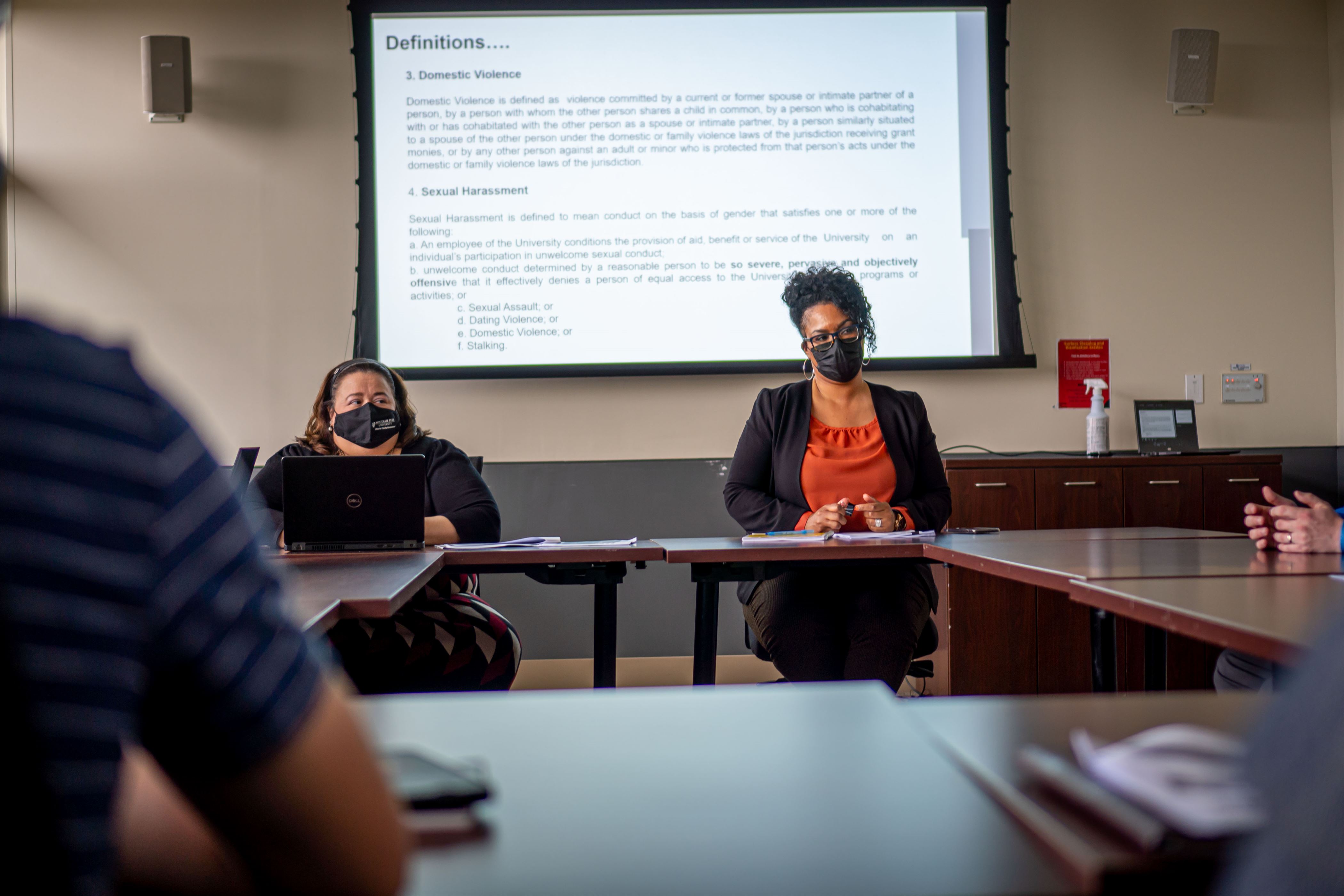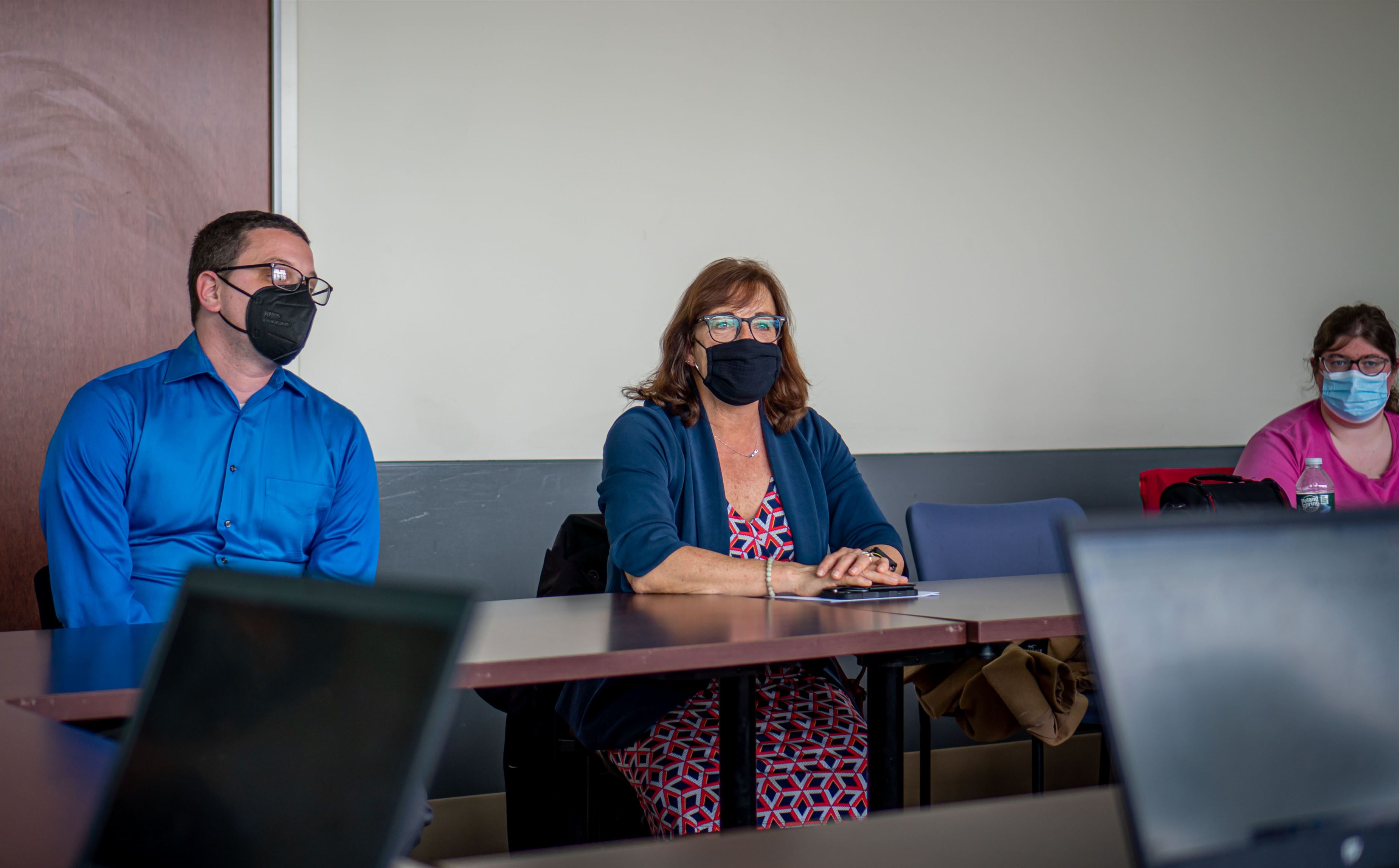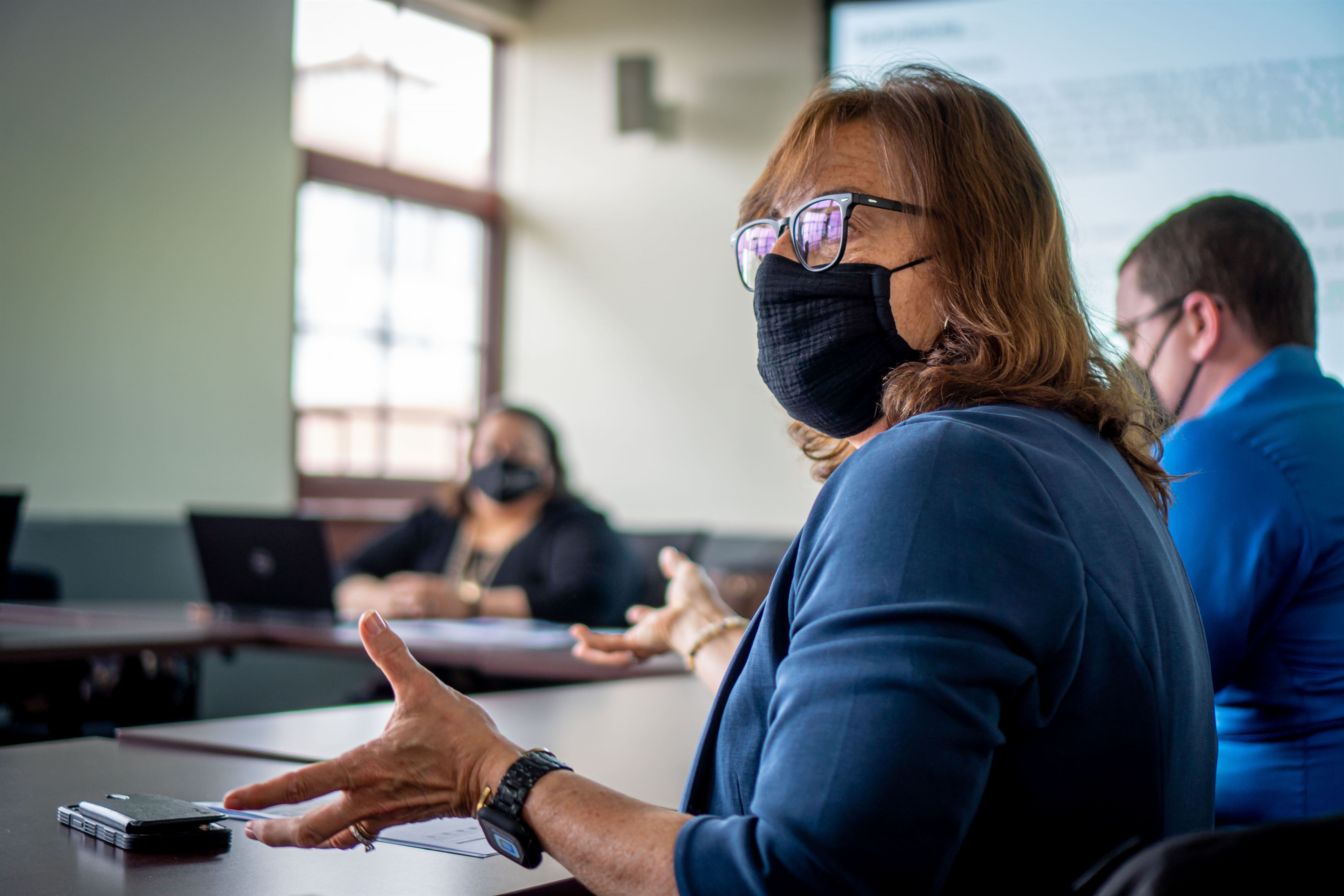Trigger Warning: The following article contains content pertaining to sexual harassment.
For the last academic year, The Montclarion has published three stories containing five separate confirmed or alleged sexual misconduct cases within the Montclair State University community. An editorial addressing the topic was done as well in February of this year titled “What Is It Going to Take To Make You Believe Us?”.
Students have been speaking out across social media about the issue, wrote up a petition in October of 2021 that received 1,200 signatures and held a demonstration just a month ago.
Students are angry with the way Montclair State administration has been handling sexual misconduct on its campus. The question is: Are they listening?
Title IX Coordinator and Director of Equity Ashante Connor and Deputy Title IX Coordinator and associate dean of students Yolanda Alvarez held a meeting on the record for the staff of The Montclarion. Vice President for Student Development and Campus Life Dawn Soufleris, Media Relations Director Andrew Mees and Dean of Students Margaree Coleman-Carter were also in attendance.
Alvarez hopes that giving The Montclarion a better understanding of the process will create a better flow of information to the student body.
“Sometimes there’s misinformation out there and that’s why I’m so glad that we have an opportunity to speak,” Alvarez said. “So [reporters] can ask some follow-up questions, based on the information that you have. You have that information [now]. And if you still feel like it’s not being addressed, then you can raise it.”

Title IX Coordinator and Director of Equity Ashante Connor (right) and Deputy Title IX Coordinator and Associate Dean of Students Yolanda Alvarez (Left) held a meeting on the record for the staff of The Montclarion.
Lynise Olivacce | The Montclarion
Title IX and Gender-Based Discrimination are the two different processes that handle instances of sexual misconduct at Montclair State. Title IX is based on federal law and Gender-Based Discrimination is based on university policies.
Other solutions are in their early stages of planning. One is hiring more people to aid Alvarez and Connor.
“There may be a different setup in terms of an extra person or persons that will have roles in the process that will be helpful to making people feel that there’s support,” Soufleris said. “[Alvarez and Connor] do an unbelievable job, but they’re two people at a very large institution.”
The hope is to announce additional support over the summer.
Soufleris attributes the rise in sexual misconduct incidents to the pandemic and thinks education is the first step towards a solution.
“I can’t believe the impact of the pandemic and particularly for our younger students, our first-year students and our second-year students and I think this incoming class, what they missed [is] their social interactions in high school and early college that we just all take for granted,” Soufleris said. “We’re also going to be utilizing our new orientation process [which will be in-person again] to get that information and have conversations with our brand new students.”

(From left to right): Dr. Soufleris believes that the the solution is education.
Lynise Olivacce | The Montclarion
In addition to this, there is discussion of mini-town hall meetings between a small group of students and the Title IX coordinators.
“[Alvarez and Connor would] go out and [do this presentation] for smaller groups, collect information, have good dialogue and maybe it has to be done 10 or 15 times to reach a lot of students,” Soufleris said.



